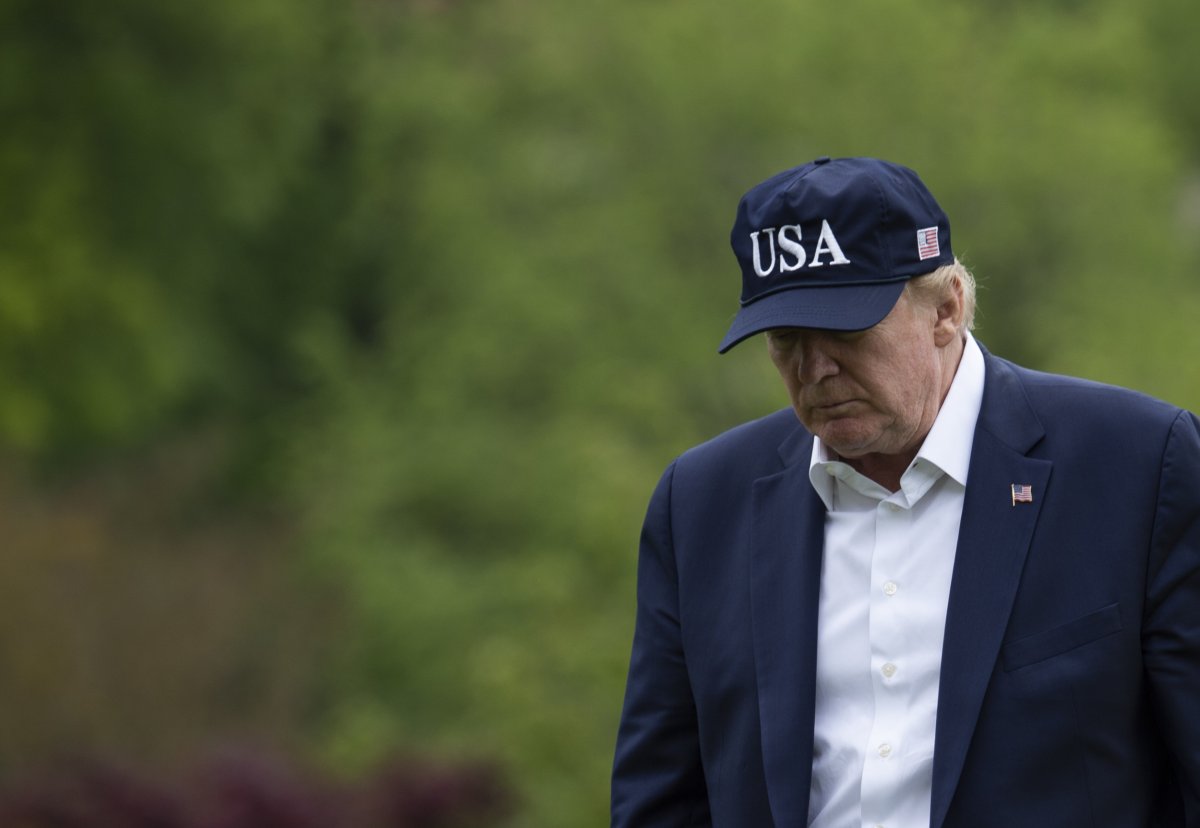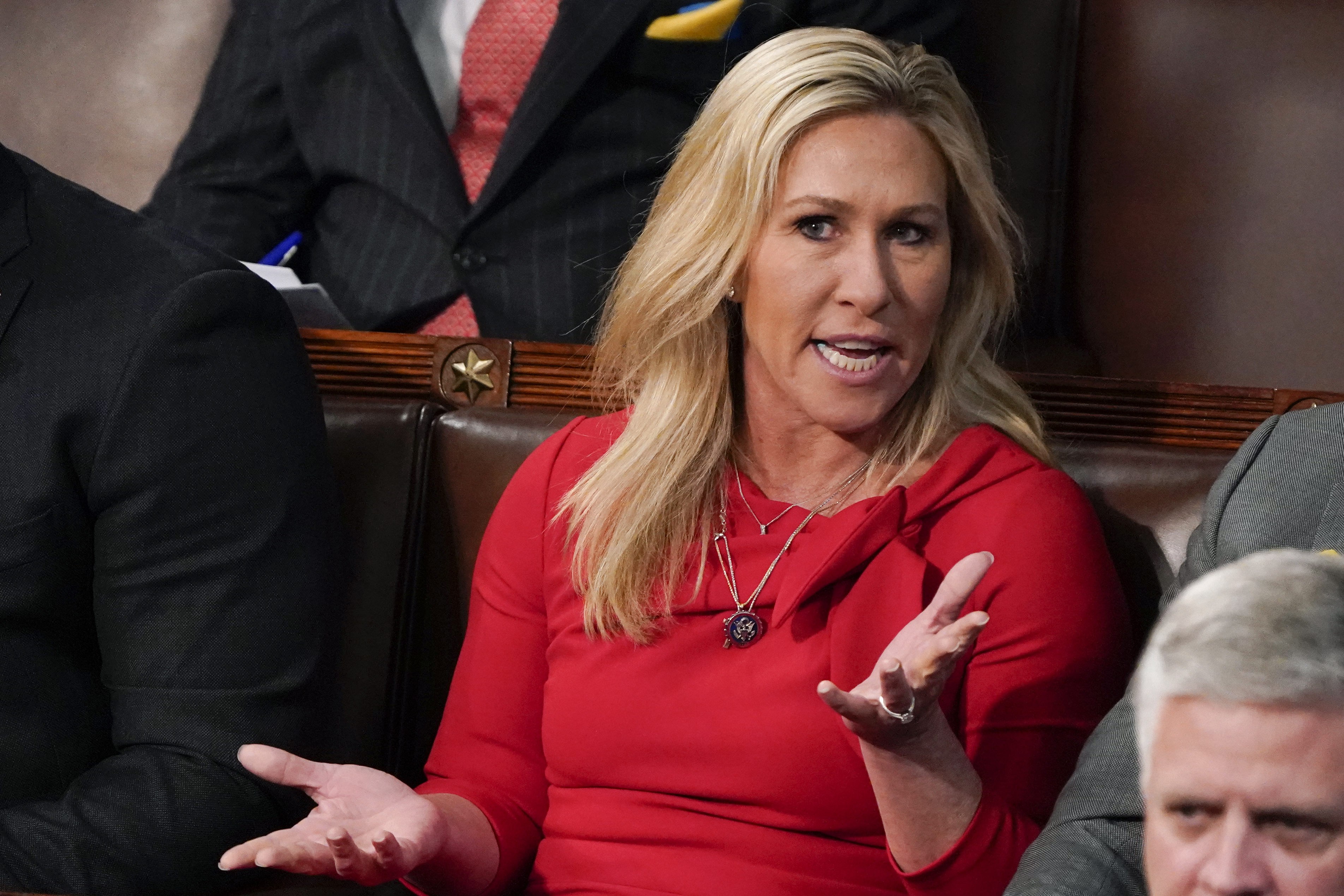President Donald Trump wants China to pay for the destruction COVID-19 has wrought. After initially praising China's approach to the now-pandemic illness, Trump has recently taken a far harsher line on Beijing. "We're doing very serious investigations," he said at a press conference last week, "and we are not happy with China."
The extent of Beijing's culpability is yet to be determined, but Trump is correct that its early mishandling of COVID-19 had dire consequences, both within China and around the world. It's also true that many of Beijing's failings here, like its suppression of inconvenient information and deliberate public deception, are characteristic of its unreformed authoritarianism.
But granting those realities leaves open the question of whether there's any meaningful, feasible and prudent way to exact reparations from China. Any policy of making China pay should go beyond political theater, be realistically achievable and not—to borrow a recent favorite phrase of Trump's—make the cure worse than the problem. Unfortunately, such an option for retribution probably doesn't exist. It's certainly not among the ideas presently on the table.
Let's start with those that aren't meaningful, like skipping the 2022 Olympics in Beijing or requiring big "Made in China" stickers in hopes of sparking an American boycott of Chinese-made goods. Though preferable to proposals that risk more serious backlash, these measures amount to little more than symbolism and saving face. (Do we really imagine Americans dealing with the worst economic climate in decades will eschew affordable products to make a political point?)
Next, let's consider feasibility. Contrary to reports suggesting it was an official action by Berlin, Germany's bill of 149 billion euros to Beijing was issued by a tabloid newspaper. It has no official weight. Indeed, German Minister of Foreign Affairs Heiko Maas has called the notion of demanding a cash payment from China "illusory," and he's quite right: Beijing won't pay large sums of money to every nation with a significant COVID-19 outbreak. Only naiveté could imagine otherwise, as the precedent such a payment would set clearly will be unacceptable to the Chinese regime.
Also failing the feasibility test is the idea of making an exception to the Foreign Sovereign Immunities Act so the administration, state governments or individual coronavirus victims could sue Beijing for damages. Trump has reportedly considered this option, but it has multiple barriers to effectiveness: It would require an act of Congress, and the House is controlled by Trump's opposition. And even if such a bill did pass, legal experts agree this type of court challenge is highly unlikely to succeed, Beijing is equally unlikely to cooperate, and permitting these suits would expose the U.S. to unwanted legal retaliation by China.
Most troubling of all are the payback ideas that are meaningful and feasible but run dangerously afoul of our third criterion of prudence. These are options which would do more harm than good, hurting U.S. interests more than helping them. The first is expanding Trump's trade war on China. For my money, this is the most probable outcome, as it fits with the president's pre-existing priorities and will allow him to boast of a huge sum of money he is "charging" China in retribution. Trump has already said he favors tariffs over defaulting on Chinese-held federal debt, as default would damage the dollar and cause massive economic upheaval.
The trouble, of course, is that U.S. tariffs are not paid by Beijing. They are paid by Americans, passed along to consumers in the form of higher prices on Chinese imports. American farmers and exporters pay a price, too, as they'll sell less in China once the inevitable retaliatory tariffs raise the cost of U.S. goods for Chinese consumers. Tariffs are functionally a tax on us, not Beijing, and they are unconscionable in this time of severe economic distress.
Sanctions fall into this third category, too, and they've been championed as a payback option by Senator Lindsey Graham of South Carolina, who often seeks Trump's ear in foreign policy debates. The Trump administration imposes sanctions at a record rate, so this idea may appeal to the president. But sanctions rarely succeed in changing their targets' behavior for the better, and they often have unwanted consequences, including strengthening anti-U.S. sentiment and inflicting humanitarian costs on ordinary people who aren't to blame for their government's actions. Sanctioning Beijing has an extremely poor chance of moving U.S.-Chinese relations in a positive direction. The effects of Trump's disastrous sanctions on Iran should caution him here.

The worst-case scenario for a payback scheme in which the cure is worse than the problem is any sort of military conflict, whether deliberate or as the escalatory result of some lesser antagonism like sanctions. Though the U.S. and Chinese militaries are not evenly matched, war with China would pose a real threat to the United States. Such great power conflict would be an enormous detriment to security, prosperity and peace the world over, including in the American homeland. It must be avoided.
As U.S. investigations shed new light on Beijing's responsibility for COVID-19's spread, the Trump administration should consider how it can put that information to better use than retribution doomed to either futility or self-harm. The wisest course is to diplomatically leverage evidence of culpability for more transparency and information-sharing going forward. If the first COVID-19 vaccine is developed in China, as is entirely possible, we want access to it. Likewise, if another pandemic illness originates in China, we want to avoid a repetition of this one's lost time and opportunities. The proper goal of holding Beijing accountable, then, isn't payback but preventing another global catastrophe and mitigating this one.
Bonnie Kristian is a fellow at Defense Priorities, contributing editor at The Week and columnist at Christianity Today. Her writing has also appeared at CNN, Politico, USA Today, the Los Angeles Times, Defense One and The American Conservative, among other outlets.
The views expressed in this article are the writer's own.
Uncommon Knowledge
Newsweek is committed to challenging conventional wisdom and finding connections in the search for common ground.
Newsweek is committed to challenging conventional wisdom and finding connections in the search for common ground.
About the writer
To read how Newsweek uses AI as a newsroom tool, Click here.








